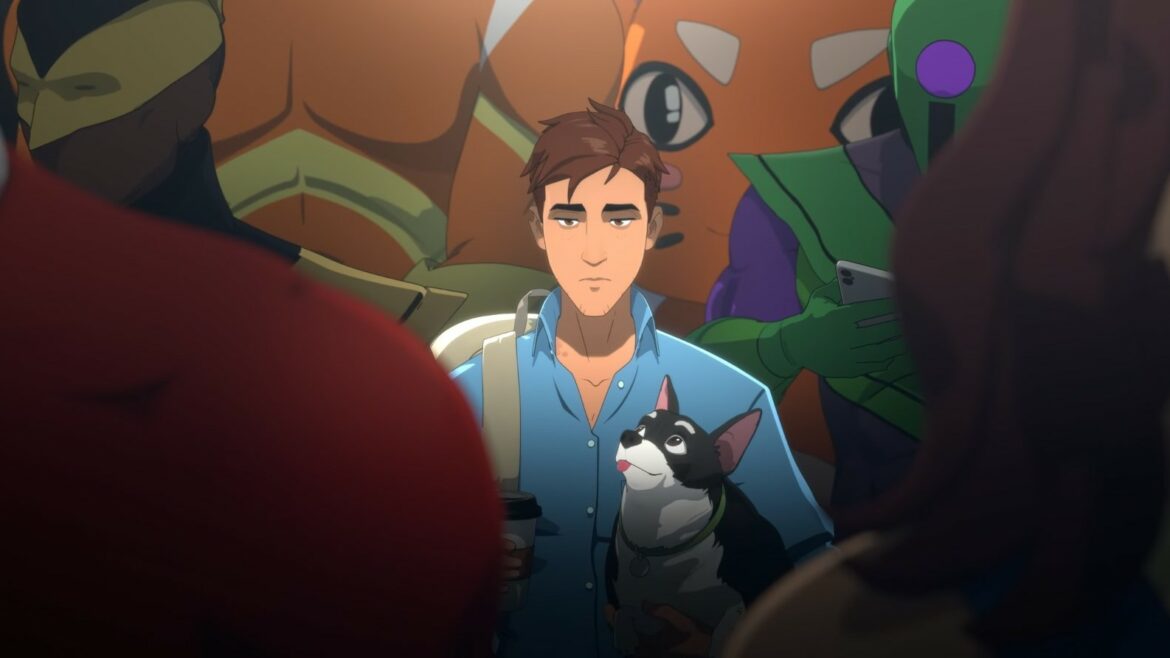Dispatch – Founded by former Telltale employees, AdHoc is a relatively young independent studio but possesses a solid foundation of experience in the field of interactive dramatic games. At The Game Awards 2024, they introduced their self-titled debut product Dispatch – a narrative work set in the superhero world, combining mission coordination elements and the genre's typical moral choices.
Initial attraction of Dispatch comes from an impressive team of voice actors. The game brings together top voices such as Aaron Paul, Jeffrey Wright, Laura Bailey, along with the surprising presence of Jacksepticeye and MoistCr1TiKaL.
It is this diverse cast that brings emotional depth and natural rhythm to each scene, helping the game's atmosphere become more lively and powerful.
When the game was officially released and quickly reached the 1 million copies mark in just two weeks, the question was: What helped Dispatch What experience does it really bring that can attract players so strongly – and is it enough to affirm AdHoc's position in modern storytelling games?
SUMMARY OF CONTENTS
Imagine an “Iron Man heir” in the most ironic situation: lacking the world's most outstanding intellectual genius, without huge assets, but having to shoulder the family's heroic legacy. That is Robert Robertson III – Mecha Man – our main character.
After a fierce battle with his rival Shroud and his subordinates, Robert's Mecha Man armor was heavily destroyed, and the Astral Pulse energy source was also missing. No longer able to continue his path of salvation, Robert decided to leave the superhero life… until he received an unexpected invitation: to become a switchboard operator for SDN, the company that coordinates the activities of superheroes.
The new job comes with an unusual challenge: managing the Z-Team – a newly formed group of superheroes made up mainly of… former villains. In return, SDN promised to provide facilities so that Robert could restore and upgrade the Mecha Man armor.
From here, Robert's new journey begins – not on the battlefield, but from behind the dispatch desk, where he must turn a group of people who once stood on the other side of the battle line into true heroes. A strange and challenging role, but also an opportunity for him to rediscover himself and the true meaning of “being a hero.”
YOU WILL LIKE
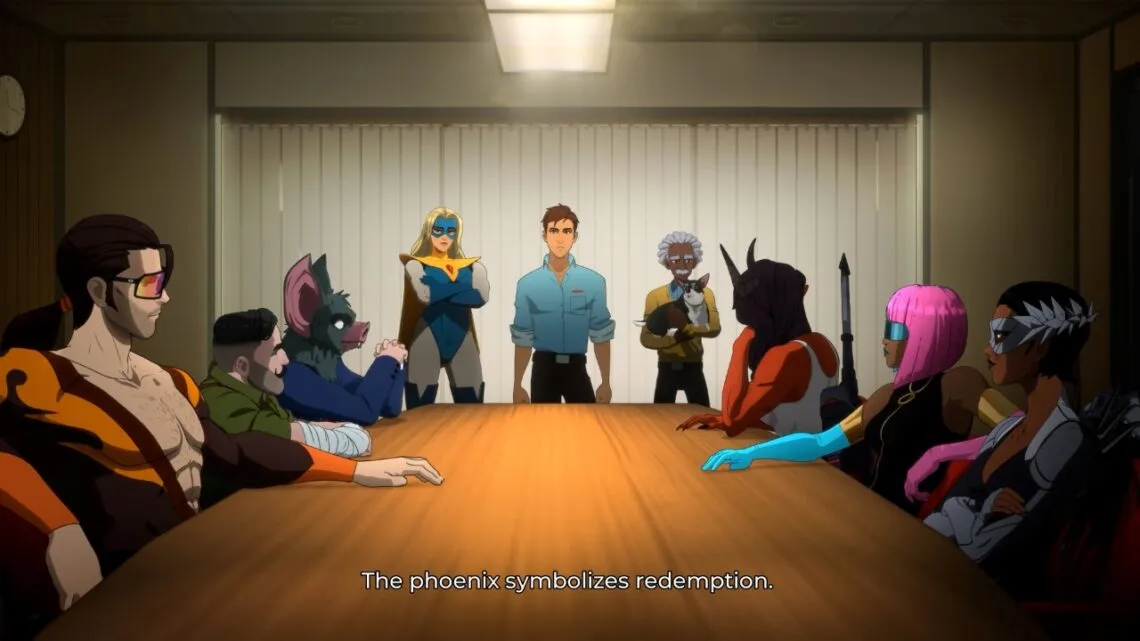
The characters and story have depth
Dispatch “Score points” right from the stage of building the plot. Robert Robertson III – the coordinator behind every mission – is a multi-layered character, both witty and sensitive, always stuck in the midst of internal conflicts when having to manage a team of superheroes who were once known as villains.
The supporting cast of characters is equally outstanding, each with their own voice, personality and a very natural “interaction rhythm” with each other, making every moment with them always lively and engaging!
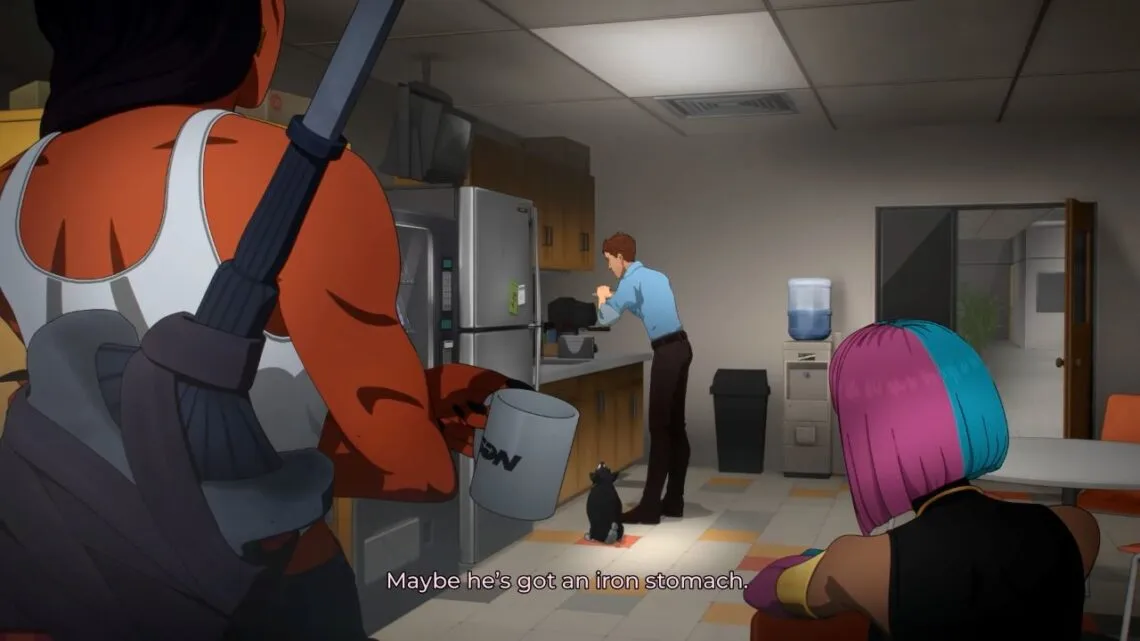
How to tell stories Dispatch is a skillful blend of office humor and superhero “drama slices”. Players not only coordinate rescue missions, but also must delicately handle the tangled relationships between superheroes, resolve their personal problems, and face their own desires and limitations. The central theme – redemption and the journey of rebirth – is strongly conveyed thanks to a clear, tight and consistent story line throughout each character line.
Besides, the presence of high-class voice actors such as Aaron Paul, Laura Bailey and Jeffrey Wright elevates the entire experience. Their acting turns each line into moments with emotional weight, helping players easily connect and feel the depth of each character.
The central theme – redemption and the journey of rebirth – is strongly conveyed thanks to a clear, tight and consistent story line throughout each character line.
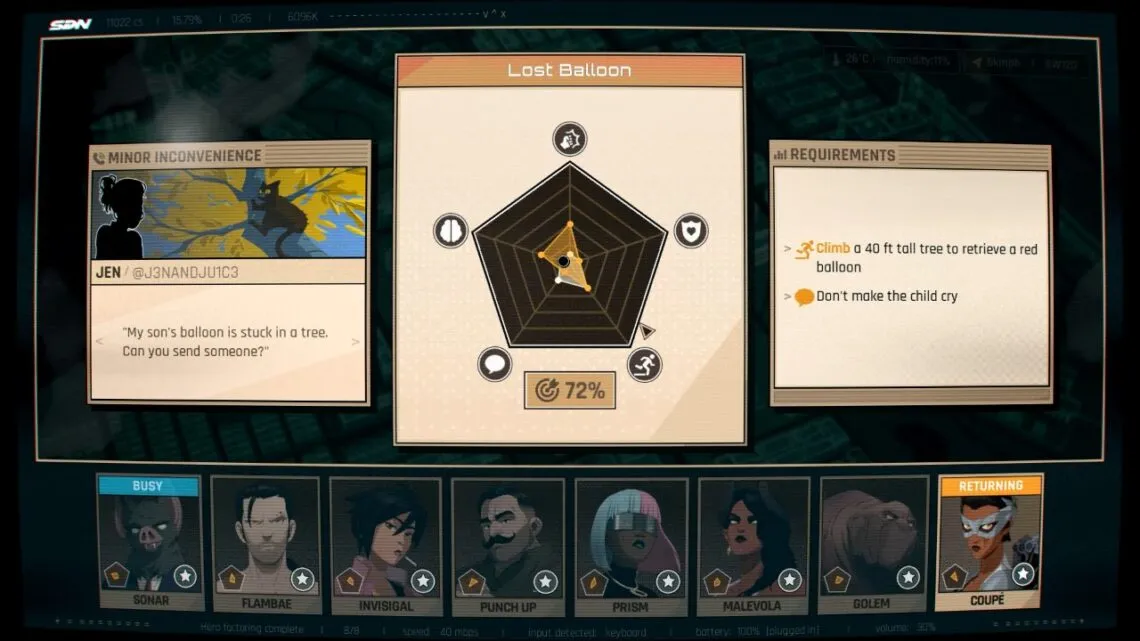
Superhero management mechanics and the weight of each decision
Core gameplay of Dispatch is divided into two important axes: Superhero Management and Interactive Drama, each axis plays a complementary role and supports the other.
During the shift, players must carefully consider coordinating the most suitable superhero for each mission, based on their unique set of stats and skills. Some missions require overwhelming combat ability, while others prioritize subtlety in communication with civilians. Putting the right people in the right situations always feels like running a vibrant ecosystem of capabilities.
After each mission, the superhero will accumulate experience to level up and improve his stats. The path of development depends entirely on the player's decision: you can foster existing strengths or proactively correct existing weaknesses. The power to shape each hero's future creates a unique strategic appeal.
At the same time, in each shift there will be training opportunities – rare moments that allow “unlocking” new perks, making the superhero stronger and more flexible. Because the number of opportunities is limited, players are forced to carefully consider their priorities: who needs to upgrade immediately, who can wait another shift.

Not just a coordinator behind the desk, Robert sometimes also directly intervenes in situations through cleverly integrated hacking minigames. Even though they are small details, these interactions not only create a lively pace for the shift, but also reinforce the feeling that Robert truly contributes to the team's victory.
Every shift worked in Dispatch Each has its own theme and rhythm, not repetitive. Some cases focus on the internal conflict between superheroes, while others force Robert to use his hacker skills to deal with a widespread power outage in the city. The feeling of “no case is the same” makes the experience always new.
If the management segment is more about tactical thinking, the focus of the interactive drama part is on the weight of each choice. The player's decisions have a direct impact on the relationships between the characters, creating the feeling that every choice, no matter how small, leaves a clear mark on the story line.
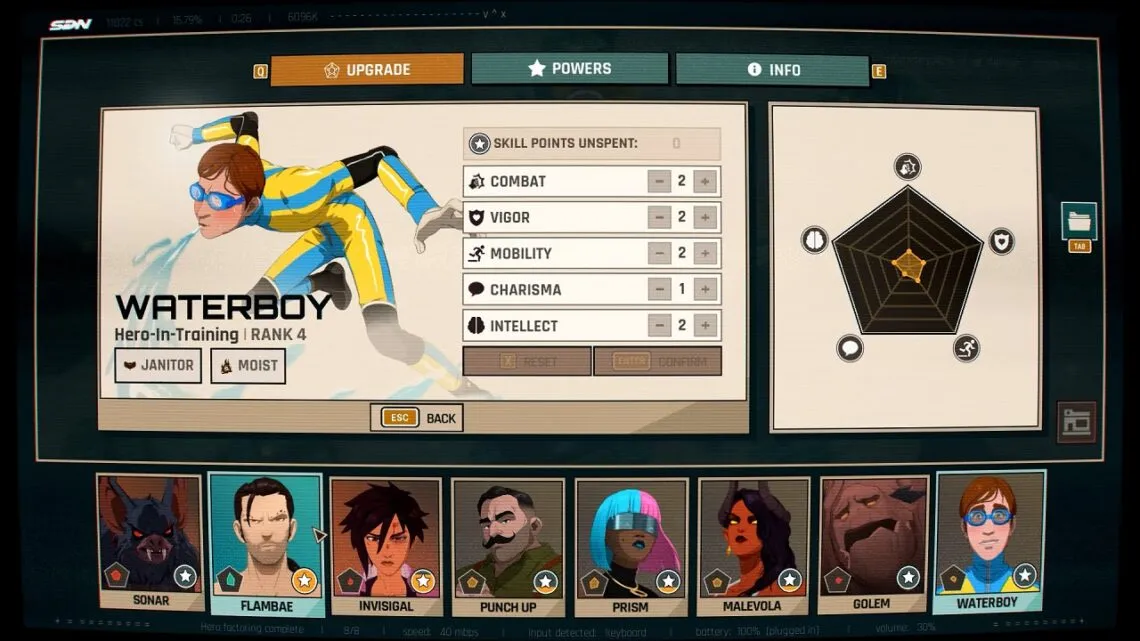
Each decision is systematic, has long-term consequences, and contributes to making the game have high replay value in a natural and convincing way.
Notably, decisions in the interactive theater segment also impact the management segment. A typical example is when the player has to choose between two candidates for a vacant position on the team: a potential rookie and a legendary veteran.
- Choosing new recruits means a difficult first period, when they are not strong enough to take on big tasks; but in return, players can develop them in the right long-term direction.
- Choose a legend that provides instant power thanks to high stats and available skills; but this character has reached his growth ceiling, forcing players to pivot their strategies based on a fixed set of limits.
And conversely, the player's effectiveness in coordination shifts will also affect some important decisions regarding the game's plot.
It is the delicate balance between squad management and relationship management that creates strategic depth for Dispatch. Each decision is systematic, has long-term consequences, and contributes to making the game have high replay value in a natural and convincing way.
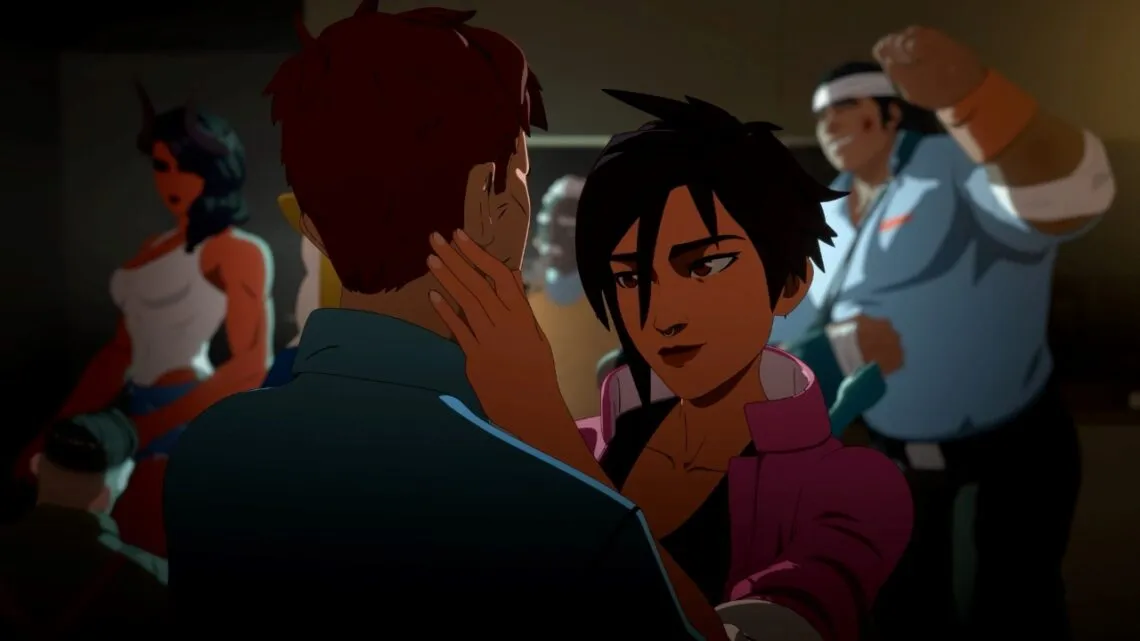
Outstanding animation style and energetic music!
One of the most impressive points of Dispatch lies in the cinematic animation style. Igloo studio – the unit in collaboration with AdHoc – has taken full advantage of the strengths of animation to build a colorful superhero world, but still retains the emotional depth and everydayness in each frame.
Characters are designed in a sophisticated animation style, with smooth lines, emotional expressions and natural movements that give each dialogue scene its own weight. The combination of modern animation style and cinematic layout helps the game have both “traditional animation” features and the breath of high-end superhero series.
Lighting, color and scene effects are also handled very carefully: the office room at SDN headquarters glows with dynamic tones; The character's small expressions are also emphasized through each frame. All makes Dispatch looks like a high-investment anime where players not only follow but also participate in the story line.
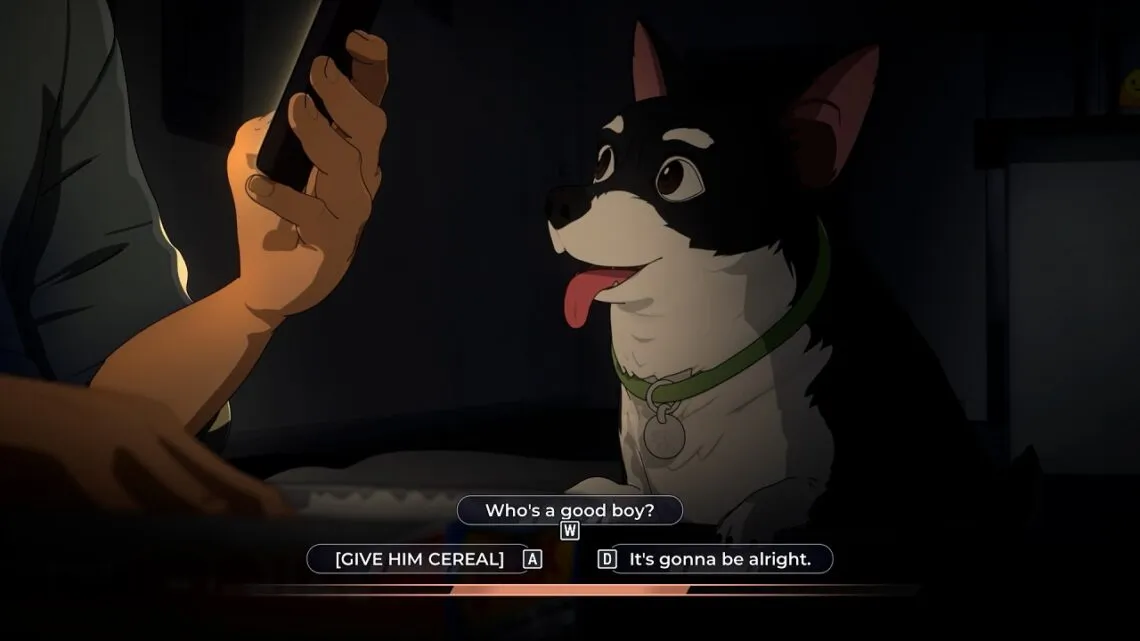
One of the most impressive points of Dispatch lies in the cinematic animation style
Not just stopping at the images, the music part of Dispatch Also handled extremely delicately. The background music uses soft synth melodies mixed with cinematic timbres, creating a feeling that is both dynamic and warm. In tense scenes, the pace is accelerated to highlight the sense of urgency of the heroes' operations; And in moments of introspection or emotional interaction, the music calms down, so that the atmosphere becomes closer and more emotional.
It is this harmony between sound and image that elevates the experience to a new level – making Dispatch not only “beautiful to see”, but also “beautiful to feel”.
YOU WILL HATE
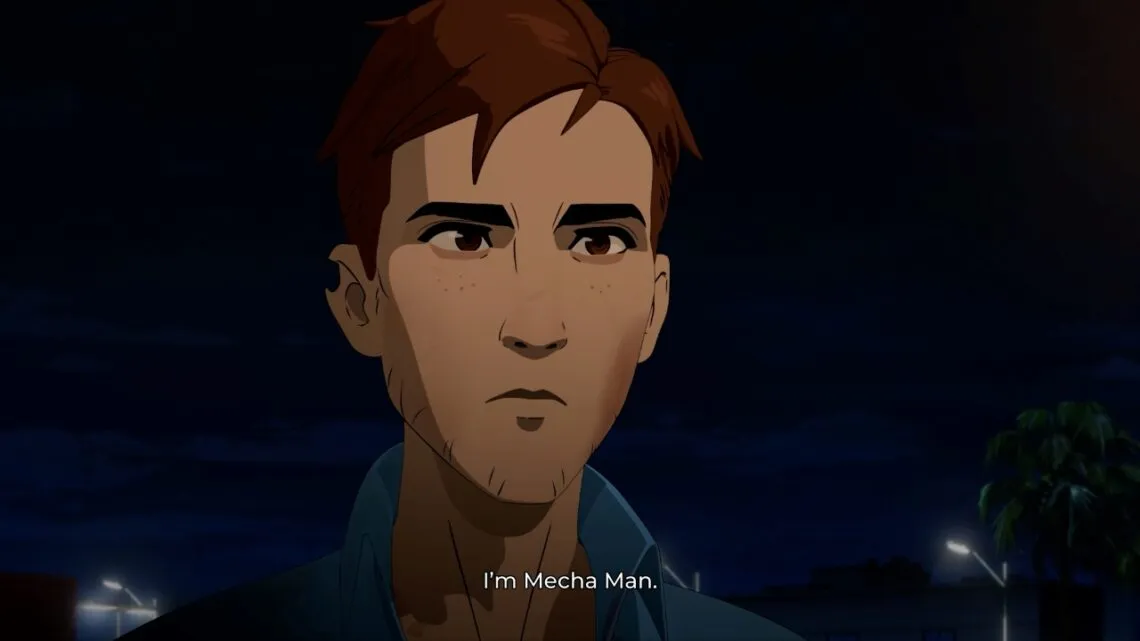
Some choices are more “canon” than others
To understand this weakness, it is necessary to recall the concept of “canon” in storytelling – that is, the official course of a work, where important events occur.obligatory” must happen for the whole story to work completely and logically.
Classic example: Uncle Ben's death is an irreplaceable “canon” event in the journey for Peter Parker to become Spider-Man.
In a game as deeply dependent on choice as Dispatchideally, all choices must be built as “parallel canon” branches: different in development, but all reasonable and integrated into the main storyline of the story. However, perhaps because of limited scale and resources, some options are available Dispatch appears less “natural” when followed by events in the following section.

Typically, between two options A and B: option A leads the story line to the next cutscene seamlessly and convincingly; while option B – even though AdHoc edited the dialogue and structure – still feels slightly “strained”, as if the story is trying to adapt to a direction that is not its main axis.
After four plays, the writer feels like he has identified the “original story line” that AdHoc uses as the basis, and from there the options are expanded into sub-branches. This is not a serious error, but it makes the experience sometimes reveal the line between meaningful choices and choices that are just variations, something that should not be made clear in games like this. Dispatch. Because if it's too obvious, obviously its “coolness” is no longer there…
Maybe because of limited scale and resources, some options are available Dispatch appears less “natural” when followed by events in the following section
